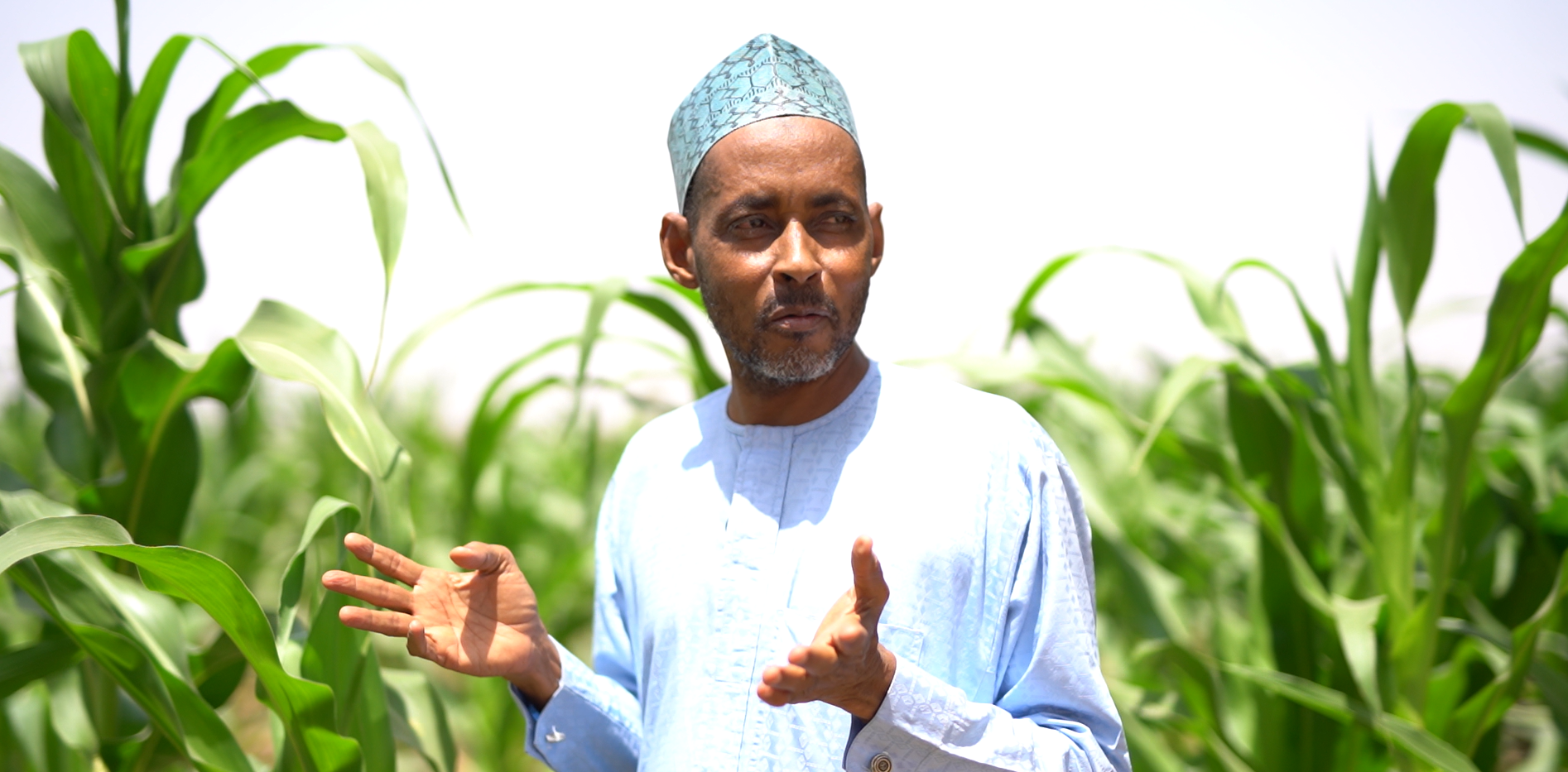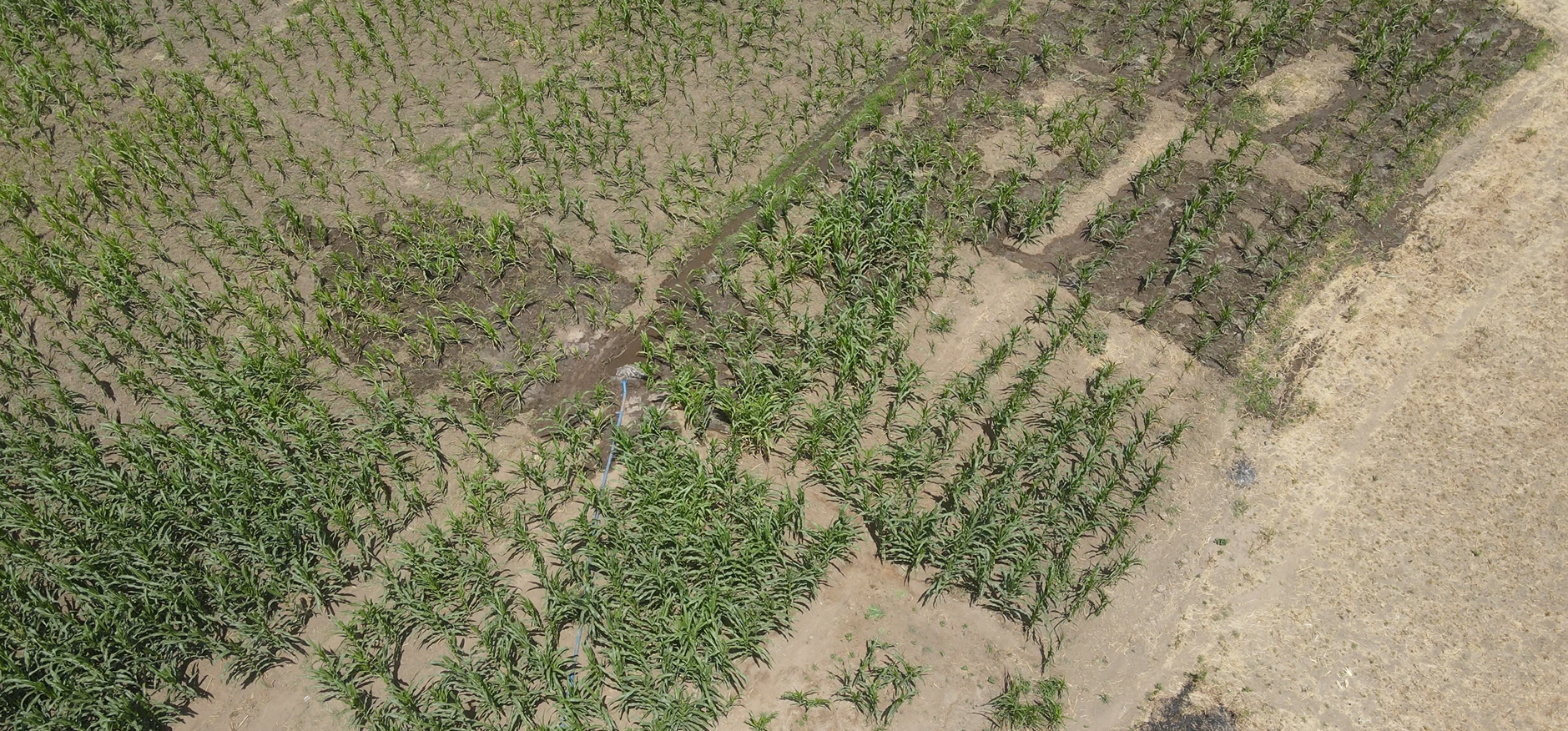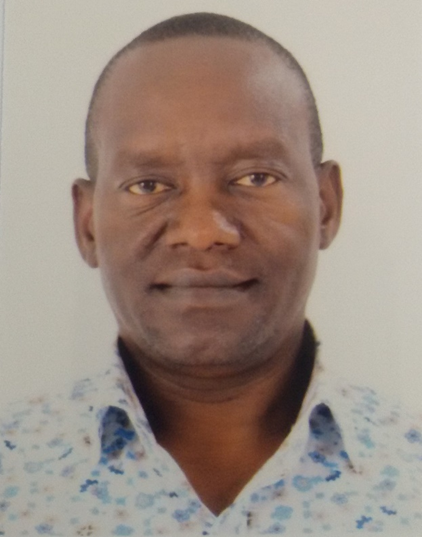By Verenardo Meeme
April 8, 2025
Adamawa State, Nigeria – Alhaji Usman Abubakar, who rose from poverty to success through agricultural innovation, has been recognized as one of Nigeria’s most influential farmers.
The 51-year-old father of five from Ngurore in Yola, Adamawa State, was celebrated at a recent OFAB Day for his entrepreneurial spirit and unwavering dedication to help other farmers transform their lives through agricultural biotechnology. The event was created to recognize pioneers like Usman, who embrace the innovative technologies that have been improving livelihoods and advancing food security across Africa over the past 19 years, according to Vitumbiko Chinoko, Open Forum on Agricultural Biotechnology (OFAB) project manager.
Usman said he struggled to grow traditional cotton farming for over 20 years, despairing as pests ravaged his crops and costly pesticides ate into his profits. But his fortunes changed in 2019, when Dr. Rose Gidado, a leading biotechnology advocate, introduced him to pest-resistant Bt cotton.
The results were staggering. “I farmed 10 acres (of Bt cotton) and harvested 3 to 5 tons per acre—compared to barely 1 ton before,” Usman recalled. The dramatic yield increase in subsequent farming allowed him to build a new home, drill community boreholes and pay for his children’s education at an American university (N450 million per term).
From poverty to success
“Science can change lives,” he said. “Bt cotton lifted me from poverty. Now, I want every farmer to have that chance.”
Usman’s success didn’t go unnoticed—the Adamawa State Governor appointed him Senior Special Assistant on Agriculture and Entrepreneurship, crediting his work for revitalizing cotton farming in the region.
When Usman was nominated to represent Nigeria on OFAB Day, he didn’t fully grasp the significance until he stood alongside eight other OFAB Champions in Mombasa, surrounded by dignitaries like Kilifi County Deputy Governor HE Flora Chibule. There, he learned how biotech crops like Bt cotton, PBR cowpea and TELA maize are transforming farming in Africa.
Expanding horizons: TELA maize and PBR cowpea
During the meeting, Usman deepened his understanding of how agricultural biotechnology contributes to food security, drawing from his firsthand experience with Bt cotton and PBR cowpea, which resists the destructive pod borer pest. He also learned how TELA maize, which offers improved yields due to reduced crop damage from fall armyworm and stemborers, coupled with drought resistance, was already transforming farming practices in parts of Nigeria, and gaining momentum in at least 4 other African countries.

Inspired, he returned home determined to expand his own biotech ventures.
“From the research findings on successes with TELA maize, I decided to try it myself,” Usman told OFAB’s Verenardo Meeme during a visit to his farm in Adamawa. “This year, 2025, I planted five acres with TELA maize. The results have been good- excellent germination, no seed loss and strong, healthy growth. Here in my fields, you can see the difference between local seeds and TELA maize. What is different is how it resists pests naturally, eliminating the need for chemical sprays.”
“Fellow farmers have come to see it for themselves, and now they’re asking for the seeds,” Usman observed. ‘‘In Adama farm, despite the harsh climate, we’ve adapted by using solar-powered irrigation in this high-temperature zone. The midday sun is so scorching that farmers can’t work during peak hours—yet our crops thrive. I urge the government to adopt TELA maize to help more farmers succeed.”

Farmers who planted TELA maize are seeing over 54% yield increase, higher revenues and lower production costs after their first season in 2024, according to Dr. Sylvester Oikeh, TELA Project Manager in Nigeria. Farmers’ incomes are rising due to reduced crop damage from pests, coupled with drought resistance and lower pesticide use.
A champion for change
Usman’s 14-hectare PBR cowpea trial also outperformed conventional varieties. “Where others harvested two to three bags per hectare, I got 18 bags—without spraying pesticides,” he explained. Despite delayed seed distribution, demand for PBR cowpea remains high, with farmers seeking his guidance.
Alhaji now dedicates himself to helping other farmers adopt biotech crops. He hosts field days to demonstrate Bt crop benefits, distributes seeds to fellow farmers and advocates for government support to make biotech seeds accessible.
‘‘To the government, my plea is clear: adopt and subsidize Bt seeds nationwide,” Usman said. “I’ve witnessed their power firsthand. Through Bt cotton, I’ve gained profits while helping others do the same. When science is made accessible -either free or affordable-it transforms lives. This technology isn’t just changing crops, it’s changing communities.’’ Alhaji urged.






















































































